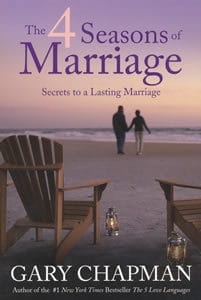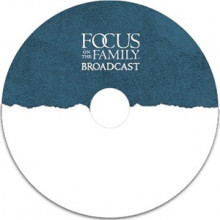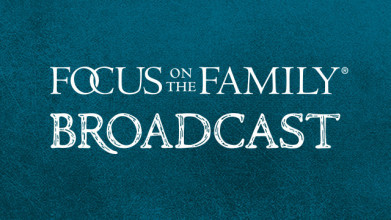Opening:
Teaser:
Dr. Gary Chapman: He said, “Dr. Chapman, we took that little quiz in the book” and he said, “I came out that we were in a spring marriage. And my wife came out we were in a winter marriage.” He said, “So, which is it?” (Laughter) I said, “You’re in a winter marriage.” (Laughter) If one of you thinks it’s winter, it’s winter.
End of Teaser
John Fuller:That’s Dr. Gary Chapman, giving some encouragement that whatever season of marriage you’re in, you can grow together as a couple and you’ll hear more from him on today’s “Focus on the Family” with your host, Focus president and author, Jim Daly and I’m John Fuller
Jim Daly: John, Dr. Chapman is one of our favorite guests here at the ministry and he offers such biblically sound advice and does it in such an honest and transparent way. We all connect with him and that’s what makes it wonderful.
And today, I think you’re really going to benefit from this conversation and learn, I think, some practical tools you can apply in your marriage today to make it stronger. And that’s why we exist here at Focus on the Family.
You know what? We want your marriage to not just survive, but to thrive and we’re gonna give you some of those suggestions on how to invest in your marriage today.
John: And you can connect with us and find trusted advice about growing together as a couple at www.focusonthefamily.com/radio.
Well, Dr. Chapman is the author of a number of best-selling books, including The 4 Seasons of Marriage: Secrets to a Lasting Marriage. And he and his wife, Karoline, live in North Carolina and they’ve got a lasting marriage of over 50 years.
Body:
Jim: Well, the proof is in the pudding, isn’t it? Gary, welcome back to the ministry.
Gary: Thank you. Good to be back with you guys.
Jim: Hey, when you look at that, what causes marriage to be in this perpetual transition of seasons that you talk about in your book? And you, of course, use the metaphor of winter and spring and summer and fall. Why are we like that in marriage?
Gary: I think because as humans, we are constantly changing. I mean, the winds are blowing different ways and things are happening in our lives and that’s why I say, you know, seasons change quickly, can change quickly. You can go from one season to another season.
But I really found this concept of using the seasons to describe the quality of the marriage. It’s not the idea you get married in spring and if you live long enough, you’ll get to winter. Not the idea (Laughter).
Jim: Yeah, you start in spring and end in winter.
Gary: Yeah, the seasons pretty much describe the quality of a marriage and if you can see where you are, which season you’re in, you can decide, “Hey, I’d rather go back to spring or summer,” you know, and that’s what we’re tryin’ to do with this.
Jim: Well, it’s important in that analogy that you use in your book The 4 Seasons of Marriage, you can be in all four seasons probably in a day.
Gary: Yeah, that’s possible. (Laughter) It’s possible, yes.
Jim: And let’s get to it with that in mind. I guess let’s start where it’s cold and frigid. There are some people that like winter sports. I enjoy skiing, but that’s not a good thing if you’re in the winter of your marriage. What does the winter of marriage look like?
Gary: Yeah, the winter season is cold. It’s harsh. It’s bitter. We are hunkered down in the igloo. We’re not talkin’ to each other or if we talk, we are arguing with each other. That’s a winter marriage. It’s not a place where you want to spend a lot of time.
Jim: When you look back, did you have a winter season in your marriage and how’d you get out of it?
Gary: Yes, our winter season came pretty early in our relationship.
Jim: (Laughing) So you started with winter.
Gary: Well, we were in spring before we got married. It was springtime when we were in love. But it wasn’t very long after the honeymoon that we began to come down and it got cold at our house. So, yeah, we went through a pretty long winter season there actually, when I knew nothing about winter or marriage. I just knew this was not the way it was supposed to be, not what I had hoped it was going to be.
Jim: You know, for the benefit of the listener, let’s go through them quickly and come back. I want—
Gary: Okay.
Jim: –to qualify a bit more with winter, but we talked a little about winter. Talk about the other three.
Gary: Okay. Spring of course, is an exciting time. It’s a lot of hope. It’s a lot of really enjoying the relationship.
Jim: That’s honeymoon time.
Gary: That’s honeymoon time, that’s right. But it can come later in marriage. You can be in spring and be married 50 years and it’s an exciting time.
Summer is relaxed. We’ve come to accept a lot of the things that were irritating in the early years. These are the people who go to marriage conferences and read books on marriage because they know that you have to water the flowers in the summer.
Jim: So, they’re investing.
Gary: Yeah, so they’re investing. It’s a good season to be in. And then the fall looks good on the outside, but the leaves are about to fall off. People would say about this marriage, “Aren’t they a nice couple?” But we know things aren’t really that well with us. And if we don’t do something, we will end up in winter.” So, the fall looks good on the outside to everyone else, but we have apprehension inside. We have questions in our minds about where this thing is going. And so, those are the four seasons and the quality of marriage that they describe.
Jim: And again, you’re gonna move through these sometimes at a rapid pace, sometimes maybe you will be stuck for a long period of time, maybe even years. Movin’ back now to winter, now that we have the definition of winter, spring, summer and fall, that couple that has felt stuck in the winter season. I mean, the igloo, the ice, the recriminations, the “It’s your fault; not my fault. I’m wonderful.” How do they begin to thaw?
Gary: Yeah. Well, you know, I think and really the heart of the book is, we give these seven strategies for improving relationships, for spending more time in spring and summer. But I think one of the first things if you’re in a winter marriage is that we have to deal effectively with our failures. We have to head-on recognize that we have created this winter ourselves.
Jim: How has that been done?
Gary: I think often it’s been done by just simply neglecting each other. We just have not spent time with each other. We’ve gone our own ways. We’ve done our own things. We’ve kept our distance from each other. And we haven’t resolved our conflicts and so, we find ourselves in a very uncomfortable relationship.
Jim: Well, what about the couple, Dr. Chapman, that’s sitting in your office for counseling and they’re both kind of in agreement. “Well, you know, Dr. Chapman, life is busy. I’ve got this vocation. I’m an executive. I’ve got a lot of demands on me. I travel 200 days a year. And the wife’s saying, ‘Well, yeah, I’ve got the young kids. They’re the most important thing in my life.'” And they’re kinda rationalizing the drift. Is that typical?
Gary: It is typical and one of the things I would seek to say to that man would be, you know, “You’re probably a great businessman or a salesman or whatever and you’re probably doin’ a great job with that. And chances are, if you continue on the route you’re on, you’re gonna make it to the top. But I want to ask you a question. Do you want to be at the top alone? Because there’s a good chance if you continue to focus on your vocation the way you’re focusing on it now and neglecting the relationship, you will be alone.”
And most guys, it’s kinda sobering to them to think, “Ooh, yeah, okay.” And I say to that wife, you know, “You’re doing a great job very likely with these children. You’re investing in their lives. It’s a wonderful thing to be a good mother. But those children in 18 years are gonna be gone. And if you don’t do somethin’ to change this marital relationship here, you’re gonna be alone also. Your kids are gonna be off in college. You’re gonna be home alone and then what are you gonna do?”
Jim: Yeah.
Let’s do something now when you can do it. Now’s the time to do something.
Jim: You know, in that context, you know, we tend to think in what some will be critical, in stereotypical ways, a lot of women are working outside of the home now.
Gary: Yes.
Jim: And they’re doing both the vocational thing, so they could be sitting in that meeting saying, “Yeah, I’m just really busy. I got all the demands of work on me. Then I get home and although we share some of those things, I still feel kinda that stereotype burden that I’m the one responsible for the home, for the shopping, for the kids, even though my husband helps. But I’m still kinda the one.” Speak to her and all the activity that’s goin’ on in her life.
Gary: Yeah, well, I think that is very common in today’s world, that a wife does have a full-time job and working with the children and tryin’ to do somethin’ maybe to keep the marriage together. And what I would say is this. You know, when we get to the end of the journey and I think of that often, because I’m getting closer to the end—
Jim: Right.
Gary: –of the journey and you look back, the things that really matter are relationships. And yes, the relationships with your children are extremely important, but your marriage relationship is also extremely important.
The vocation seems important at the moment and yes, it’s bringing in money so that you can have some of the pleasures of life. But when you look back ultimately, it’s not the vocation you’re gonna remember and think and feel good about. It’s gonna be the relationships that you either feel good about or you deeply regret. Let’s live so we don’t have regrets when we get to the end of the journey.
Jim: Hm.
John: Well, I appreciate that perspective. I wonder if we can go back to you and Karolyn and what you said was a pretty early winter phase that y’all went through. How’d you get there? And what were some steps you took to get out of that so early in your relationship?
Gary: Well, we got there by arguing, because that’s—
Jim: Seriously.
Gary: –essentially the way we handled conflicts. I had no idea how to handle conflicts before we got married. Never read a book on conflict resolution. Didn’t think we’d have any conflicts, because we were in love (Laughter). We didn’t have any conflicts when you’re in love.
Jim: And you’re so much alike.
Gary: (Laughing) And we’re so much alike. (Laughter) I found out we’re totally different.
Jim: Right.
Gary: So, we had a lot of conflicts and we ended up arguing with each other. And when you argue, you put the other person down. You communicate to them that their answer is stupid or whatever, you know. And it’s not a good [thing]; it creates winter.
And it took us a while to realize that, that was not working and I’ve shared with you on an earlier program how God worked in my heart to show me that rather than demanding things of my wife and thinking that I’m the leader and she’s supposed to do what I say, I got a biblical perspective on leadership.
Jesus said to His disciples after He washed their feet, I’m your leader and in My kingdom, this is the way you lead. You serve.” And that was a new concept for me. I thought the leader barked out orders. When I realized that God was asking me to serve my wife, I asked Him to change my heart because I didn’t have the heart to do that. And when He changed my heart, then I was willing to reach out to her and began to serve her and find that.
John: And what were a couple of the first things that she allowed you to serve her in–
Gary: Well, when I—
John: –to change?
Gary: –when I asked her, you know, what I could do to help her, she had ideas, you know and one would be to help around the house. I found out years later, of course I knew nothing about love languages in those days, but I found out years later, her love language was acts of service.
You know, I remember when I said to her probably six weeks into the marriage, I said, “Honey, the toilet’s dirty.” And she said, “I know. I was wondering when you were gonna clear it.” (Laughter) And I said, “I don’t know how to clean toilets.” And she said, “I’ll teach you.” You know, she wanted me to do things to help in our little apartment, you know. And I didn’t do any of those things because my mother did all that stuff.
So, you know, when I asked her what I could do to help her, she began telling me and so, really I was loving her. I wouldn’t have called it love at that juncture. I would’ve called it service, but I was loving her and she was beginning to feel differently toward me. And then once you get the love thing going, the service attitude toward each other going, then you can work through your conflicts much easier, because you’re not as nearly as demanding. You’re trying more to understand each other and then reach a resolution.
Jim: Yeah, you know, Gary, I constantly think about why in the marital relationship, we tend to be so and I’m gonna use the word (Chuckling) “stupid.”
Gary: Yeah.
Jim: And that’s the best way to describe it unfortunately. I can remember years ago, I was so frustrated. There was just a mound of (Chuckling) clothes on the ironing board. And I mean, it was like 3′ high. (Laughter) And I’m thinkin’, oh, what is goin’ on in here. And I know people are gonna go, “That’s horrible, Jim. Don’t do it.”
John: Hard-hearted—
Jim: “Don’t do it.”
John: –how could you? (Laughter)
Jim: So, Saturday rolled around and I was gonna do it and I huffed and I puffed and I pulled that ironing board out and that big mound of clothes and I threw the clothes into our chair in the living room and I set up that ironing board. And I began to press clothes for like eight hours (Laughing). I mean, I was like opening a laundromat. This is horrible. And I’m into it like halfway goin’, this may be one of the stupidest moves I’ve ever made. (Laughter) But you know, only through sheer desire to prove I’m right, I hung with it and I got it all done.
And to my amazement with my huffing and puffing and my poor attitude, even though I had done all the pressing, Jean was not that satisfied with me. (Laughter) Now and I’m thinkin’, hey, wait a minute. But it was the attitude—
Gary: Yeah.
Jim: –of the whole thing. And I’m sittin’ here thinkin’, why are we so stupid with so much of the conflict in marriage, that we’re not thinkin’ it through. If I wanted to do that, in hindsight, just keep your mouth quiet. Have a good attitude.
Gary: Yep.
Jim: Go in there. Get the ironing board. Get the laundry, voluminous as it was and start doin’ it.
Gary: Or to say beforehand, “Honey, would it be helpful to you if I ironed the clothes?”
Jim: Yes.
Gary: You know, so she can either say, “Oh, that’d be wonderful.”
Jim: Rather than making it a point of instruction—
Gary: Yeah, right.
Jim: –which isn’t a good way to go. (Laughter)
Gary: Right.
Jim: Did that happen to you, where these were points of instruction?
Gary: Yeah, well, I was always instructing her on what should be done. (Laughter) I mean, that’s what I thought about the toilet. Why have you waited so long. I mean, the toilet’s dirty. Can’t you see that? (Laughter) You know, and so, I was expecting her to do everything and instructing her that it should be done, rather than asking, you know, what can I do? What can I do? I mean, it’s the whole thing of questions instead of preaching. And when you start asking questions, you change the whole environment.
Jim: Well, that’s what Jesus did.
Gary: That’s what Jesus did. And then you let their answers guide you into how you can do something meaningful for them. And when a person is actually reaching out to you and tryin’ to help you, inside there’s something [that] happens in you and you want to reach out and help them.
Jim: Right.
Gary: It’s the whole thing that we love God because God first loved us. We didn’t come up with this idea of loving God. He loved us and sent His son. And then we respond to His love. And I believe that works the same way in marriage.
Jim: I’d only add that when you do it with a poor attitude, there are no brownie points. (Laughter) And I would not do it that way, so—
Gary: Right.
Jim: –that was just a miss. You’re listening to “Focus on the Family.” Today our guest is Gary Chapman. We’re talking about The 4 Seasons of Marriage: Secrets to a Lasting Marriage. And Gary, you’ve covered winter. One thing before we move out of winter and get a little defrost and move into spring, you mention there are some positive benefits in winter, which you know, most people right now are thinkin, what could be positive? Well, what is it?
Gary: Well, the big positive in being in a winter marriage is, it often motivates you to do something about it.
Jim: Ah.
Gary: When you’re cold and harsh and bitter, you realize, this is not good. This is not the kind of marriage we want to have. And so, often it will motivate you to read a book on marriage or to go to a marriage counselor or to go to a marriage conference or, you know, reach out in some way to do something to make it different. And that’s the positive thing about winter. Not much else is positive about it.
Jim: Right.
Gary: But it can be motivator.
Jim: So, it pushes you into another season which there’s only one way and that’s up, isn’t it?
Gary: Yeah. (Laughter)
Jim: It’s right. Well, I can relate to that here in Colorado. I love when spring comes, ’cause winter just lasts forever here. Let’s move to spring. You touched on it, but tell us again, spring and what that’s about.
Gary: Well, spring is an exciting time. You have visions. You have dreams. You have hopes. You anticipate things you’re going to do together. And almost everyone starts their marriage in spring. When you’re in love, it is a spring season. And so, you’re anticipating all these wonderful things in spring. And that’s good. Typically people don’t necessarily move quickly from winter to spring. It takes a while.
Jim: Yeah.
Gary: And one of the things that we just touched on is, you have to deal with your failures. There needs to come a point at which you say to the other person in your own words, “You know, honey, I realize I have let you down in a lot of ways.” Or “I have been harsh to you,” or whatever. You describe. You’re tryin’ to describe what you sense you’ve done to them. “And I realize, I’ve just taken the joy out of your life and I don’t have any joy either. And I know that a part of this is my fault and I just want to tell you I’m sorry and I want to ask, I hope you can forgive me and I hope we can have a new start.”
And when either one of you takes that approach and you reach out to tear the walls down that have developed between the two of you, you can almost feel the ice melting, you know and it begins to get warmer. And then you start doing positive things and the love language thing, of course, would be a positive thing. Learn how to speak their love language and speaking that love language.
And now it’s getting really much warmer, because we’ve dealt with the past failures and now we’re starting to do things differently than what we’ve done before.
Jim: Gary, when you talk about the love languages, you know, it’s been a while since we’ve touched on those. Give us the five again and I honestly don’t know which one is me. I know that I’ve taken that test. I’ve read the book. My kids knew right away what they were and they can’t even answer what I am, so maybe we could work that out. (Laughter)
Gary: Okay.
John: Personal counseling (Laughter) for Jim Daly.
Jim: Right here. (Laughter) I don’t know. I love ’em all.
Gary: Yeah, well, the five love languages are words of affirmation, using words to affirm the other person, “You look nice in that outfit.” “Appreciate what you did.” Gifts, universal to give gifts as an expression of love. The gift says they were thinkin’ about me. And then there [are] acts of service, cleaning the toilet. Doing the ironing.
Jim: That might be mine, cleaning the garage. (Laughter) It always comes around (Laughter) to the garage.
Gary: Acts of service, doing something you know they would like for you to do. Quality time, giving them your undivided attention, extended conversations. And then, physical touch. And typically out of the five, everybody except Jim has a primary love language. (Laughter)
Jim: I’m the outlier; there we go. (Laughter)
John: I keep telling you, it’s physical touch.
Jim: John keeps huggin’ me (Laughter) and I’m tellin’ him, that’s not my language.
Gary:Here’s another approach for you, Jim. When you get alone, sit down and say, “If I had to give up one of these from my wife, which one would I give up first?”
Jim: Huh, okay.
Gary: And so, you’ve eliminated one. You’re down to four.
Jim: Yeah.
Gary: Now which one would I give up?
Jim: Can I ask you this in that context. Do you think some of that love language and you wrote the book literally, is some of that learned in childhood. I mean, I’m thinking of acts of service and I’m serious. You know, for me, things being in order, things being tidy, it’s what I like.
Gary: Yeah.
Jim: It gives me a sense of peace, partly because I had a really bad stepfather who made it a kind of a military approach to a clean house. I mean, my closet is reasonably in order. And I don’t know if that’s what I learned as a 9-year-old from him.
Gary: Yeah.
Jim: It could be though, right?
Gary: Yeah, I don’t know whether it’s nature or nurture. I’m often asked that question, you know, are you born with a love language or does it develop because of things that happened in the early years. And I don’t know the answer to that. It’s like a lot of other personality traits, you know, that we—
Jim: Sure.
Gary: –we don’t know. But I do know that you can pick out on a child’s love language by the time they’re about 5-years-old–
Jim: Yeah.
Gary: –just by observing how they respond to you.
John: And part of this is how we ourselves express love, isn’t it?
Gary: Well, we often express love in the way we would like to receive love, not always, but many of us are speaking what we want to hear. So, I gave my wife, for example, words of affirmation, you know. I told her how nice she looked and so forth, because that’s my love language. But that wasn’t her love language. Her love language was acts of service. I didn’t know any of this, you know.
So, even though I said positive words, in her mind, if I really loved her, I would’ve been doin’ some of these things. So, in her mind, I didn’t love her. These words were cheap to her.
Jim: That’s how she interpreted it.
Gary: Yeah, that’s how she interpreted.
Jim: That’s fascinating. Would you say there’s a correlation, getting back to the seasons, which is what we’re concentrating—
Gary: Yeah.
Jim: –on today, if you’re doing the love language well, you can probably stay in spring and summer—
Gary:Yeah.
Jim: –more likely in your marriage.
Gary: Yeah. If you’re loving each other and doing it on a regular basis in the right love language and if you’re dealing with your conflicts in a positive way and solving them, rather than tryin’ to argue about them and win the argument, then yeah, you’re gonna spend more time in spring and summer.
Jim: Now you said that for spring, that typically identifies the honeymoon period, the infatuation, the blind love.
Gary: Yeah.
Jim: But you said and I want to dig into it, that a couple can come back to that season of life throughout their marriage. You don’t have to see that as only the first couple of years.
Gary: Absolutely.
Jim: Now a lot of people are hearing this going, “Oh, no way. I just don’t believe it–”
John: We’re way past it.
Jim: -“’cause I’m 15 years in and I haven’t felt springtime in our marriage since year one.”
Gary: Yeah, but springtime is often a time of new beginnings and you can have a new beginning at any juncture in your marriage.
Jim: Define a new beginning in that regard.
Gary:Well, when you acknowledge the past failures and you start looking for the positive things in the relationship, rather than the negative things in the relationship. And always there’s something positive in your spouse. I’ve never met a man [that] there wasn’t something good about him. Yeah, he’s a good whistler, you know. (Laughter)
Jim: That’s a pretty low bar. (Laughter)
John: I contribute.
Gary: Look for something. (Laughter)
Jim: Now you would pick something I can’t do. (Laughter) I’m a pathetic whistler. Thanks a lot. See, we’re lower than that.
John: Words of affirmation, that’s what you are. (Laughter) You’re a good man even though you can’t whistle, Jim.
Jim: There you go. I don’t believe it.
Gary: But here are some of the emotions that are in a spring marriage. It’s excitement; it’s hope. It’s warm. It’s tender feelings. It’s happiness. And the attitudes are anticipation. We’re gonna do some things differently now and optimism and gratitude. Gratitude’s big in the spring. You are lookin’ for the positive things. You’re expressing gratitude to each other.</s




















